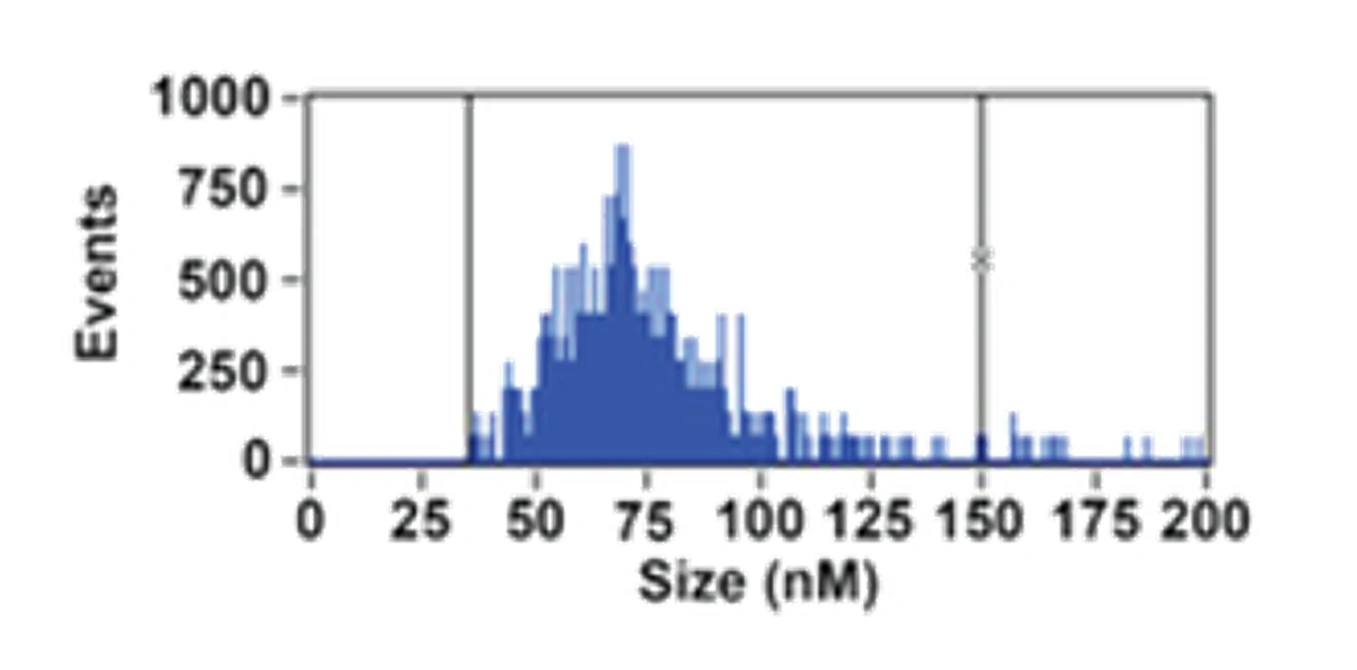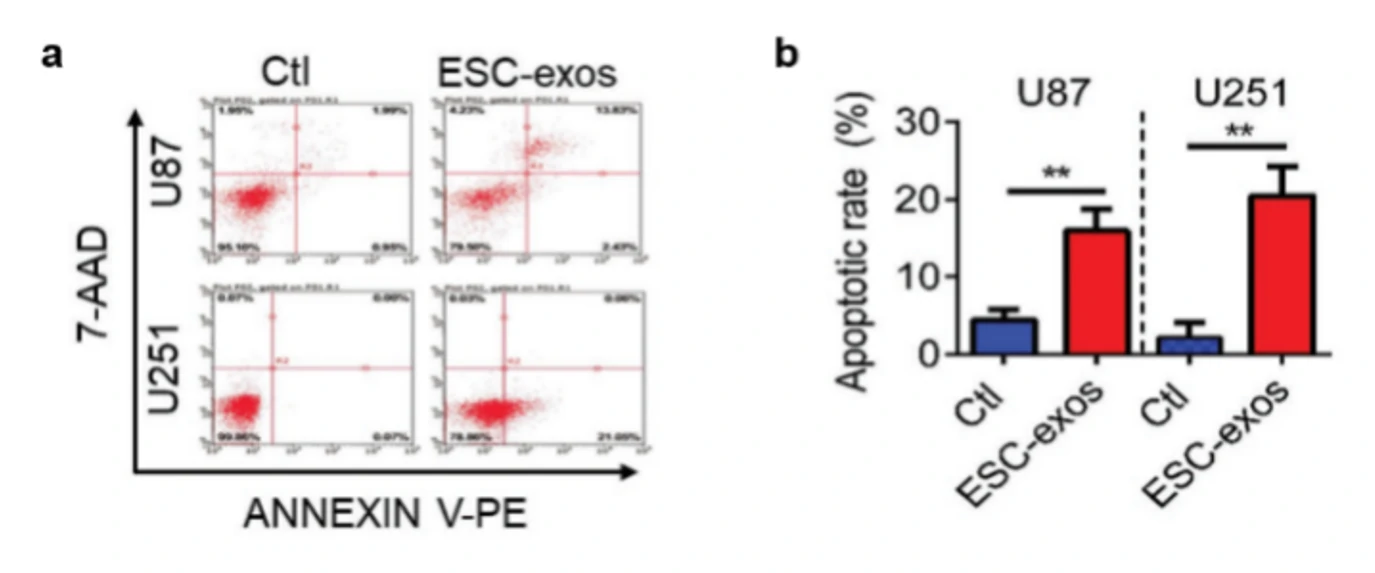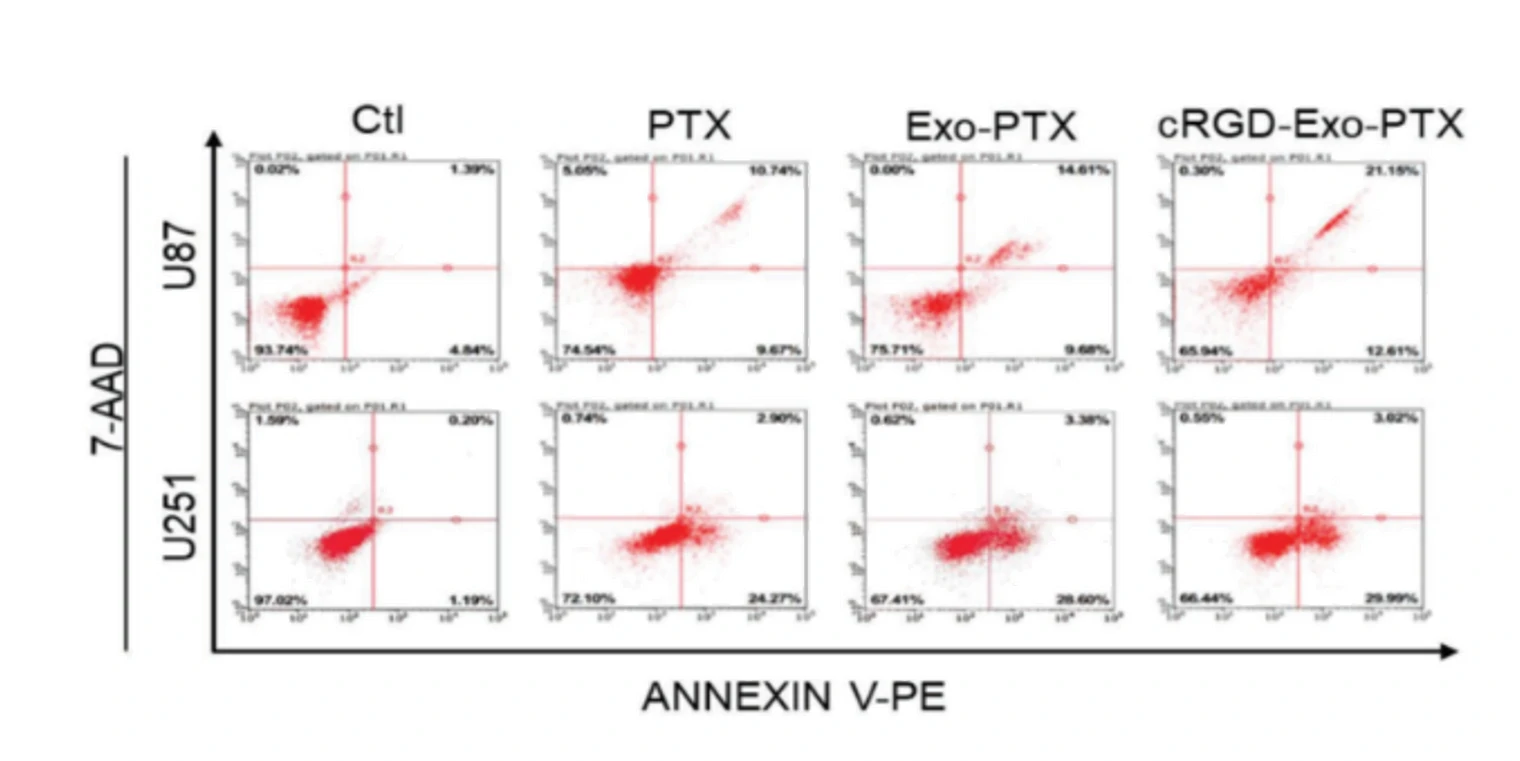Embryonic Stem Cell Exosomes for the Treatment of Malignant Glioma
Glioblastoma (GBM) is the most common primary malignant tumor of the central nervous system with high mortality and disability rate. High drug resistance of GBM along with limited delivery of chemotherapy drugs due to limitations arising from crossing the blood-brain barrier (BBB) reduces efficacy of treatment and predicts poor diagnosis. There is an urgent need to develop new drugs which can cross the BBB, thereby achieving effective treatment of GBM. In previous studies, researchers have worked on developing synthetic drug delivery systems to enable effective delivery across biological barriers. However, the challenge of nanocarriers to traverse the BBB has not been fully resolved, additionally the nanocarriers can themselves induce biotoxicity.
The study showed that embryonic stem cells (ESCs) derived exosomes (ESC-exos) have inhibitory effects on glioma cells and can be enabled to target tumor tissues by the modification of the exosomes (cRGDyK peptide modified). At the same time, paclitaxel (PTX) is added to the exosomes to improve the ability of exosomes to resist glioma, providing new ideas for the treatment of malignant glioma and other types of tumor diseases.

Figure 1. The size distribution of ESC-exos.

Figure 2. ESC-exos inhibits the activity of glioma cell.

Figure 3. The size distribution of cRGD-Exo-PTX and Exo-PTX.

Figure 4. Apoptosis of glioma cells treated with PTX and different types of ESC-exos.
The Flow NanoAnalyzer has the capability to determine whether the exosomes have been successfully modified and/or loaded with therapeutic drugs, as well as further evaluate the loading efficiency of drugs.




